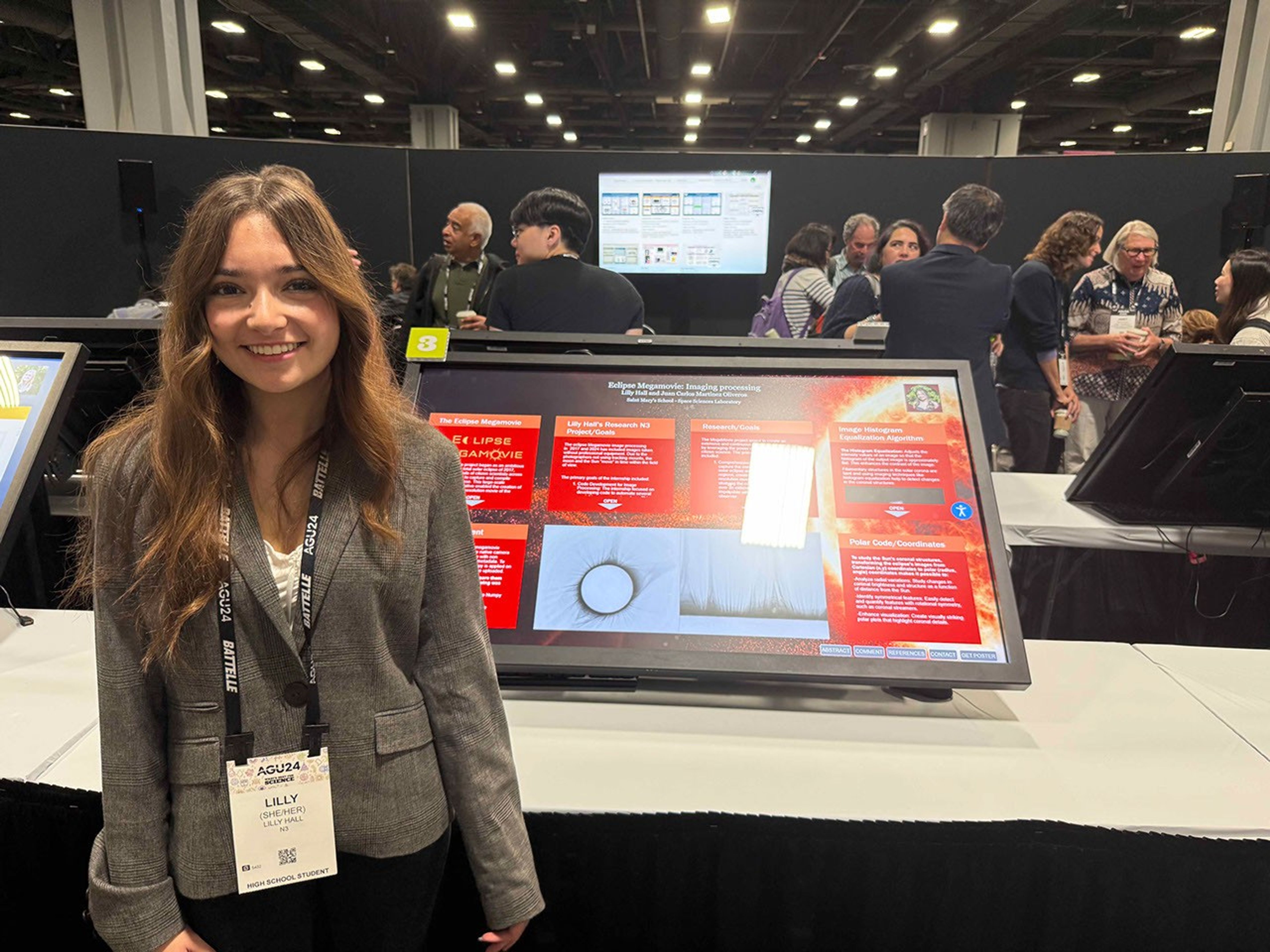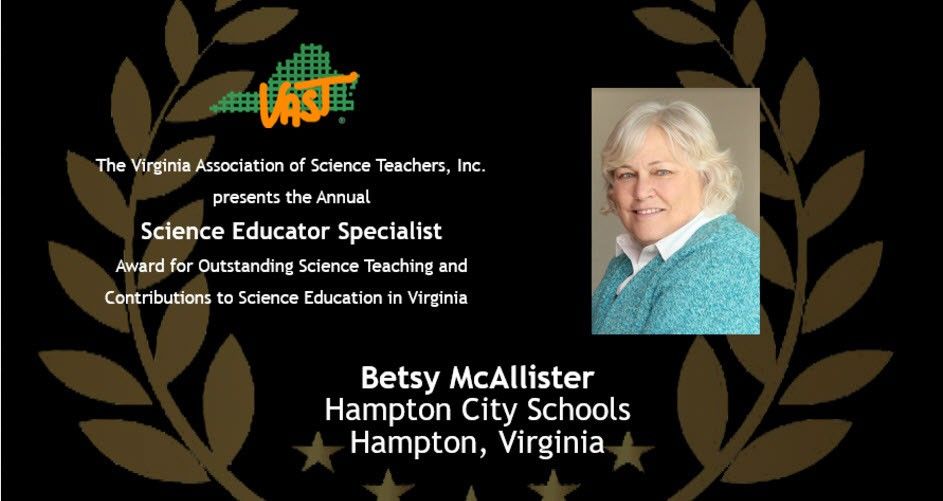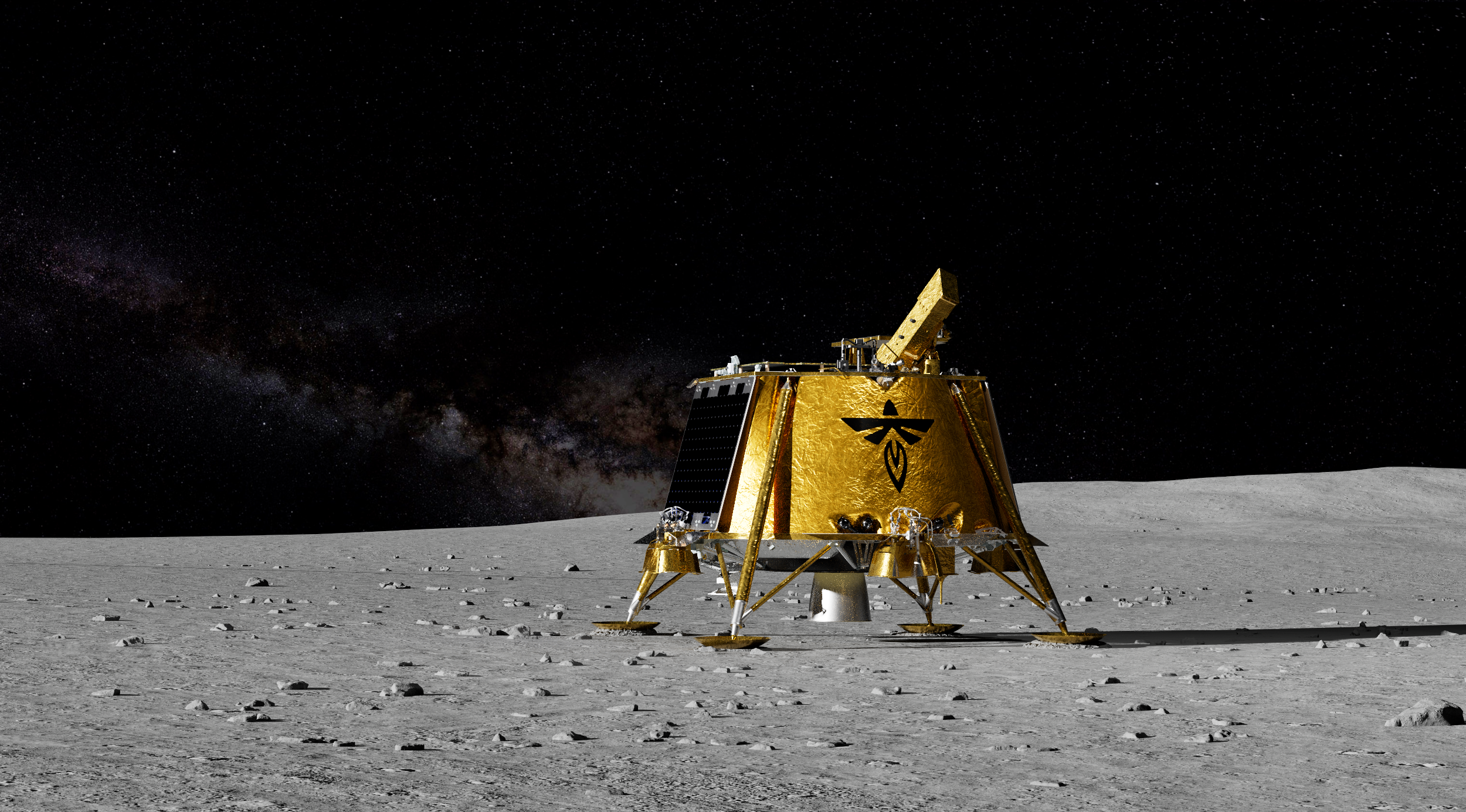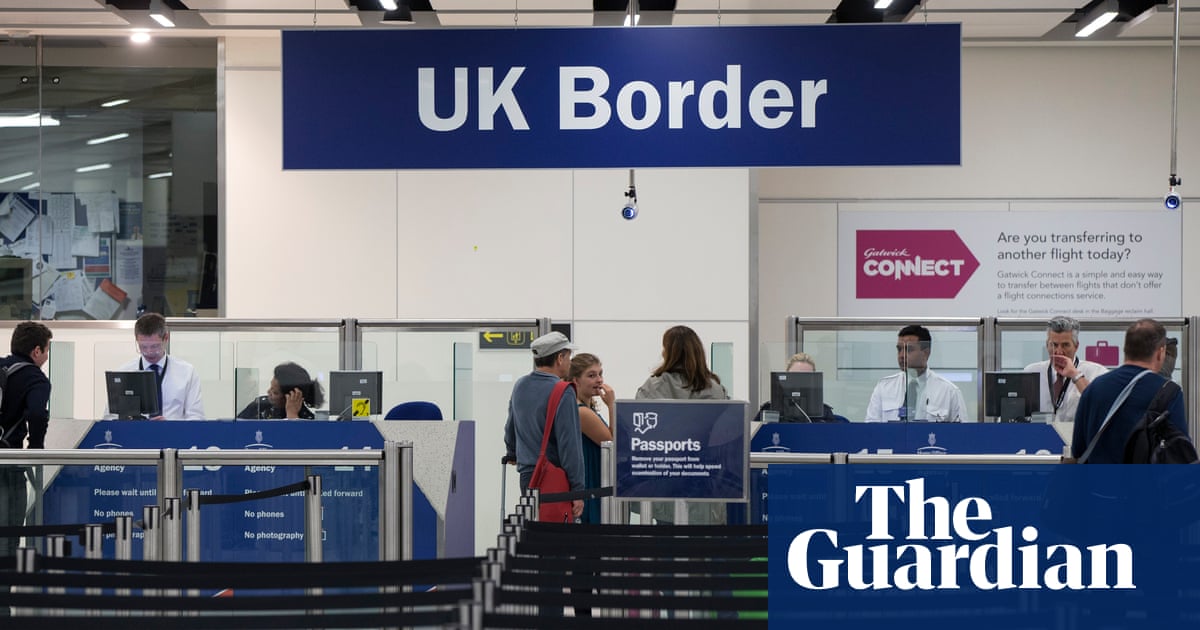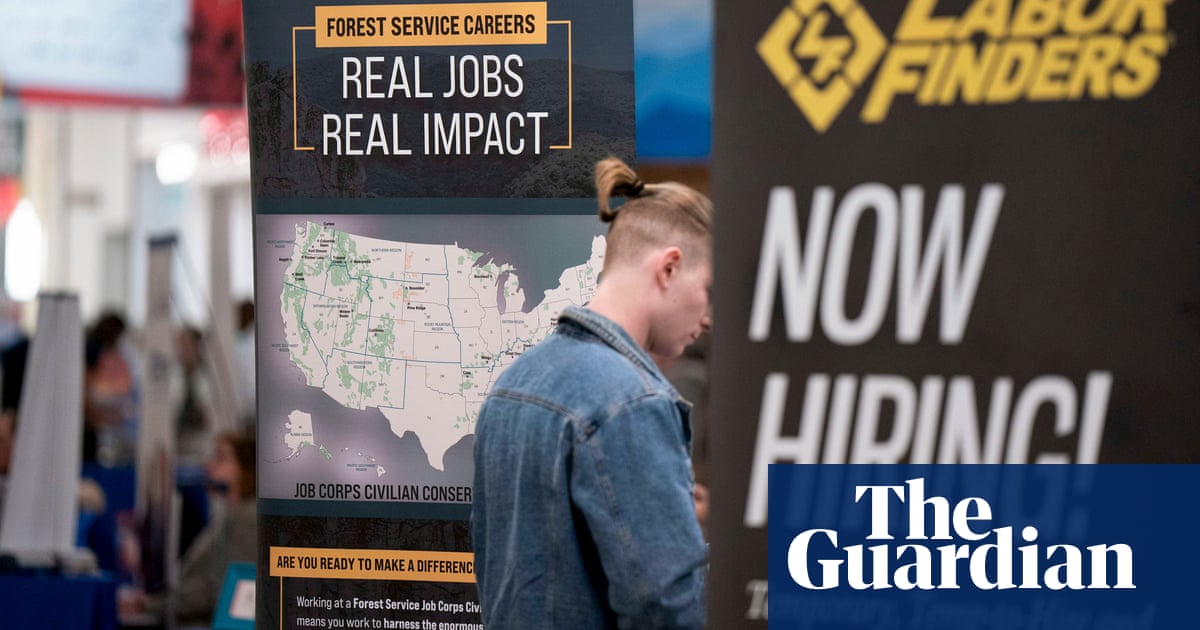2 min read
First NASA Neurodiversity Network Intern to Present at the American Geophysical Union Annual Conference
The NASA Science Activation Program’s NASA’s Neurodiversity Network (N3) project sponsors a summer internship program for high school students, in which learners on the autism spectrum are matched with NASA Subject Matter Experts. N3 intern Lillian Hall and mentor Dr. Juan Carlos Martinez Oliveros presented Lilly’s summer research project on December 9 at the 2024 American Geophysical Union conference in Washington, D.C. Their poster, entitled “Eclipse Megamovie: Image Processing”, represents the first time an N3 intern has co-authored a presentation at the prestigious AGU conference.
The NASA Citizen Science project, Eclipse Megamovie, is leveraging the power of citizen science to construct a high-resolution time-lapse of the Sun’s corona during the April 8, 2024 total solar eclipse. By coordinating the work of hundreds of participants along the path of totality, a substantial dataset of images was obtained. The goal of the project is to unveil dynamic transformations in the Sun’s atmosphere that are only visible during a total solar eclipse.
To process the vast quantity of imaging data collected, Lilly assisted Dr. Martinez Oliveros and other researchers in implementing a robust pipeline involving image calibration, registration, and co-location. Image registration techniques aligned the solar features across different frames, compensating for Earth’s rotation and camera movement. Finally, they used imaging techniques to enhance the signal-to-noise ratio, revealing subtle coronal structures and possible dynamics. This comprehensive data processing methodology has enabled the extraction of meaningful scientific information from the Eclipse Megamovie dataset.
Here’s what Lilly had to say: “Working with N3 has given me a chance to use my neurodiverse perspective to make an impact on NASA research. Through the processes of my project and the opportunity to share it at the American Geophysical Union conference, I am so grateful to have found my spot in the planetary science field I dream to continue researching in the future.”
Learn more about NASA Citizen Science and how you can participate (participation does not require citizenship in any particular country): https://science.nasa.gov/citizen-science/
The N3 project is supported by NASA under cooperative agreement award number 80NSSC21M0004 and is part of NASA’s Science Activation Portfolio. Learn more about how Science Activation connects NASA science experts, real content, and experiences with community leaders to do science in ways that activate minds and promote deeper understanding of our world and beyond: https://science.nasa.gov/learn
https://www.agu.org/annual-meeting/schedule
Share
Details
Related Terms
Article by:Source


